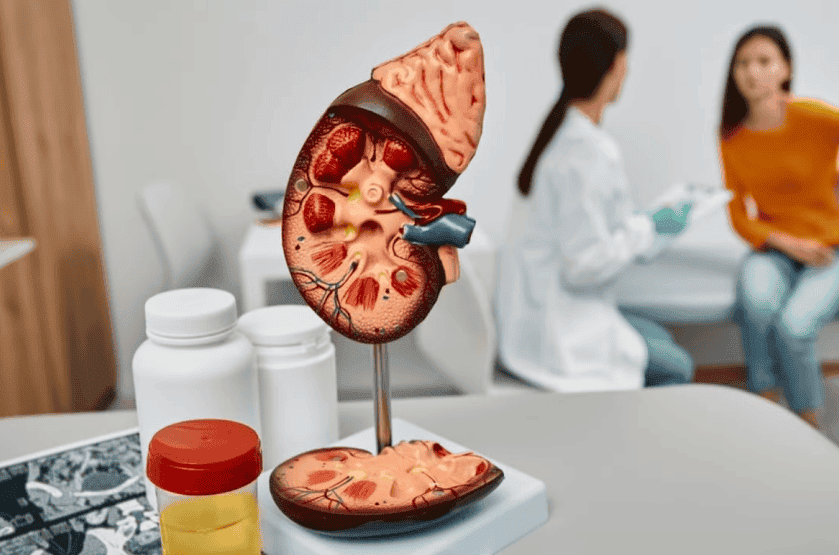Seasonal foods are less expensive and support healthy digestion. This leads to better sleep, mental clarity, and healthy immune system and kidneys.
Ayurveda recognizes that nature’s harvest is also an antidote to qualities that prevail in every season.
Understanding the qualities of each season can help you reduce negative health effects. Ayurveda divides the seasons into three categories instead of four- Vata, Pitta and Kapha. Following the seasonal diet is best for kidney treatment in ayurveda.
Vata season (Air and Space)
This season is associated with late fall and early winter. The weather turns cold, windy and the ground will be dry. It affects breathing, blood circulation to the kidneys, muscle activity, etc. Also watch out for dry skin, irregular digestion and unexpected lack of energy. Below is the suggested diet to be followed in vata season (recommended for ayurvedic kidney treatment).

Suggested diet-
- Emphasize sweet, sour and salty food.
- Eat fresh, hot and well prepared food.
- Drink lots of warm fluids to avoid dehydration. This may include hot herbal teas.
- Eat bananas, avocados, root vegetables, ghee, milk, fresh yogurt, eggs, nuts, seeds and lean meats.
- Green grapes, oranges, pineapples and grapefruits are also beneficial.
- Salt stimulates appetite and digestion. It is best to use natural sea or mineral salt instead of regular table salt.
Foods to avoid-
- minimize foods with a hot, bitter, and astringent taste.
- Hot chilli peppers, horseradish, beets, raw onions.
- Kale, bitter gourd, burdock root, eggplant and chocolate.
- Keep your inner body warm. Eat moist foods such as stews, soups and avoid cold salads and snacks.
Kapha Season (Water and Earth)
This season lasts from winter to early spring.
Suggested diet-
- Here switch to foods with a pungent, bitter and astringent taste.
- Use spices like turmeric, cinnamon, garlic, cardamom, cumin, ginger.
- Consume apples, cherries, lemons, peaches, pears, blueberries.
- Artichokes, asparagus, beets, bitter gourd, cabbage, carrots, celery, eggplant, cabbage, lettuce, etc.

Foods to avoid-
- Reduce sweet, sour and salty taste.
- Avoid bananas, melons, coconuts, grapes, grapefruits, kiwis, oranges, papayas, watermelons, etc.
- Avoid tomatoes, zucchini, sweet potatoes, avocado, pumpkin, cucumber.
Pitta Season (Fire and Water)
This season lasts from spring to autumn. This dosha mitigates astringent, bitter, and sweet taste. While salty, sour, and pungent taste exacerbate them. Understanding such tastes will help you make better food choices.
Suggested diet-
- Try eating a combination of high-carb, grounding, cooling, and fresh foods.
- Prefer cold food over hot or warm food.
- Light and nutritious foods should be preferred over heavy or dense foods.
- Eat dry food, not liquid.
- Fresh juices and other soft drinks are preferred over caffeinated or alcoholic beverages.
- Emphasize sweet foods like fresh yogurt, ghee, root vegetables, pumpkin, etc.
- Foods with a bitter taste such as dark chocolate, Jerusalem artichoke, bitter melon and spices such as turmeric, saffron, neem leaves and cumin should be consumed.
- Astringent foods are preferred in Ayurvedic treatment for kidneys because they limit Pitta’s tendency to absorb excess fluids and sweat, prevent diarrhoea, avoid blood clotting disorders, and tone tissues.

Foods to Avoid-
- Avoid eating too much sugary sweets or refined sugar. Try to eat naturally sweet foods.
- Minimize spicy foods such as raw onions, radishes, turnips, chilli peppers, and especially hot spices, as overly spicy flavors can cause inflammation to kidneys, dizziness, bleeding, etc.
- Avoid acidic foods such as grapefruit, pineapple, green grapes, sour cream, hard cheese, etc., which can irritate the blood, cause heartburn, cause pus in wounds, etc.
- Avoid eating food that is too salty, as it disturbs blood balance, damages kidneys, increases heat, etc.
In Ayurveda, a year is divided into 3 seasons depending on the prevailing doshas or elemental forces. Vata, Pitta, and Kapha are the 3 doshas which represent the 5 elements in varied amounts-
- Earth
- Water
- Fire
- Air
- Space
Once the doshas are in balance, the state known as “Sattva”, a person can enjoy optimal health. According to Karma Ayurveda, an ancient Indian medical treatise, an imbalance in one element or area can be corrected by applying the opposite. He always recommends a balanced approach in life to avoid imbalances – such as balancing hot and cold and vice versa. Ayurveda says “Food is medicine when taken properly.” When foods that are uniquely suited to the individual’s psychology are consumed and a Sattva based lifestyle is maintained, digestion is improved and promotes good kidney health.
Taking Ayurvedic medicine for kidneys disease with following diet is considered to be a good alternative for allopathic kidney treatment. Lekhniya Guggul Tablets is made using pure and ayurvedic herbs, having no side effects.


I have leakage of protein in urine
Thank you sneh for your valuable comment and sharing your story. You can share your report on whatsapp or call at 9810196196.